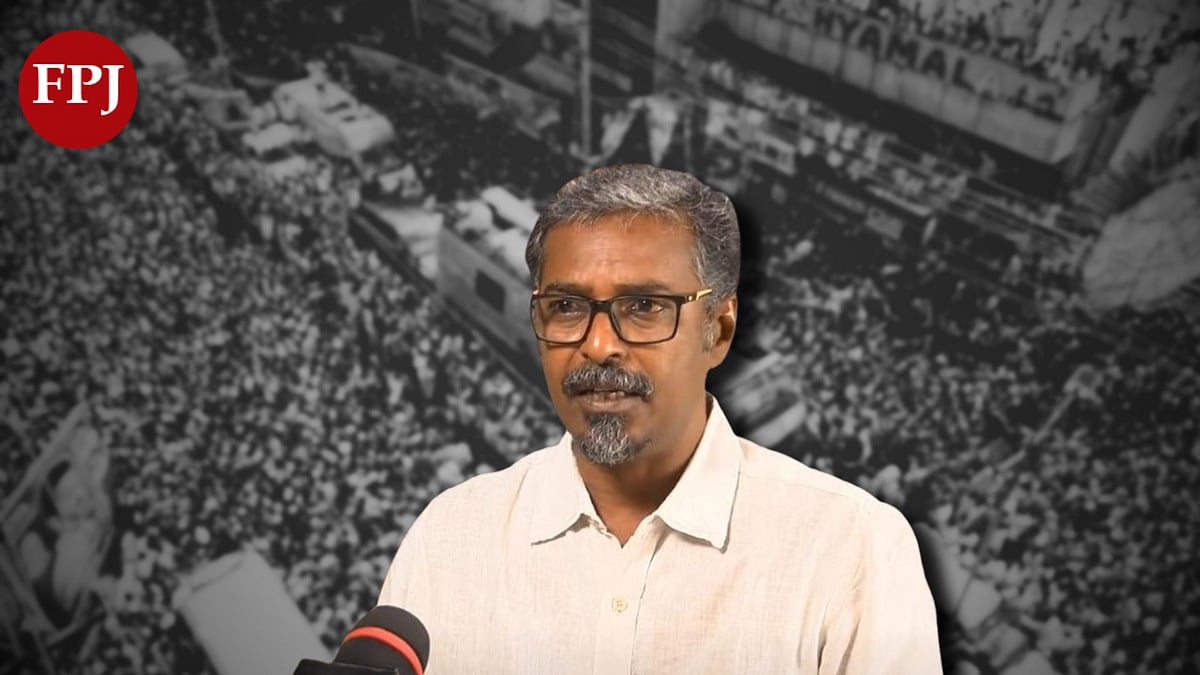Mumbai has always beckoned thousands from various small and big towns, each seeking to carve their distinct identity. This bustling urban hub teems with ambitious individuals, hustling relentlessly to showcase their true potential. Throughout its history, Mumbai has been a magnet for dreamers from all walks of life, luring those with aspirations of achieving greatness across diverse sectors.
In Mumbai, India's traditional hub of the Banking, Financial Services, and Insurance (BFSI) sector, a troubling trend is emerging — its waning ability to attract and retain FinTech companies. Mumbai, long hailed as India's financial capital, finds itself at a crossroads, raising concerns about its relevance and future in a rapidly evolving landscape where innovation and connectivity are paramount.
Amidst the vibrant streets of Mumbai's Nariman Point, Lower Parel, Bandra Kurla Complex — all of them hubs of BFSI companies — a vision of an entrepreneurial FinTech hub has been left unrealised. The once expected cluster of FinTech startups and emerging technology firms has been reduced to a fraction of what was envisioned. Instead, towering buildings housing established financial institutions dominate the skyline, evoking nostalgia for the city's glorious past rather than offering a promising future. It is time to accept the reality that in many aspects, that Mumbai is living in its past glory, and that it is time to reinvent itself.
A closer look at the data reveals the magnitude of Mumbai's struggle. Despite the rapid growth of the Indian FinTech industry in recent years, Mumbai's share of FinTech companies has been dwindling. While Mumbai's dominance in the BFSI sector might suggest a natural attraction for FinTech companies, the reality is different. Cities like Chennai, Bangalore, NCR and Hyderabad have experienced an unprecedented surge in FinTech investments, leaving Mumbai trailing far behind in this race of innovation and disruption.
Several factors contribute to Mumbai's decline and missed chance in attracting tech startups. The exorbitant cost of doing business in the city poses a significant barrier for emerging FinTech companies. Skyrocketing real estate prices, soaring office rents, and a high cost of living weigh heavily on startups, dampening the spirit of entrepreneurship and prompting them to seek more cost-effective options in other cities offering favorable ecosystems and incentives. Mumbai’s status as a financial capital should not come at the expense of pushing out emerging players who are vital to the growth and dynamism of the FinTech ecosystem.
The sprawling nature of Mumbai, coupled with its inadequate transportation infrastructure, exacerbates the challenges faced by FinTech companies. Mumbai’s local trains and buses, once hailed as the lifelines of the city, are now strained beyond capacity, struggling to accommodate the needs of its burgeoning population. The overcrowding not only adds to the stress and discomfort of daily commuters but also creates inefficiencies in business operations. Unfortunately, the daily commutes in Mumbai are notorious for being long, arduous, and time-consuming, impacting productivity and work-life balance. Mumbai can no longer boast that its taxis and autorickshaws serve consumers fairly at the meter rate. In most places, such as BKC, one can see the taxi and auto mafia in action. Yet there has been no action taken so far. Such challenges add to the stress on middle and lower management staff in any corporate, let alone a startup.
While Mumbai’s skyline showcases its economic prowess, the city’s social infrastructure often lags behind. Issues such as inadequate and crowded healthcare facilities, overburdened educational institutions, and limited recreational spaces impact the overall quality of life for residents. A vibrant FinTech ecosystem thrives on the availability of well-rounded social amenities that attract and retain talent. Without a strong social infrastructure, Mumbai risks losing its appeal not only to FinTech companies but also to the skilled professionals they seek to recruit.
Moreover, despite boasting a vast talent pool, Mumbai faces a crucial skills gap in specialised areas vital to the FinTech industry, such as data analytics, artificial intelligence, and blockchain technology. While universities and educational institutions strive to bridge this gap, Mumbai's tech talent pipeline falls short compared to other emerging tech hubs, hampering its ability to attract and nurture innovative companies. Mumbai does not even boast of a second cutting-edge educational institute worth its research reputation. Mumbai has long lost out in the quality education aspect, thereby choking its own education research capabilities which used to attract students and industries alike.
This struggle in Mumbai's educational landscape further compounds the issue. Regulatory roadblocks hinder the establishment of new educational ventures, with cumbersome bureaucracy and stringent compliance procedures discouraging innovation and efficiency. Most of us Mumbaikars who were educated locally owe our degree affiliation to the University of Mumbai. It is that same institution which has become obsolete in itself. It needs a complete overhaul to make it relevant to the concept of modern learning and latest knowledge.
For education institutions, the soaring real estate prices and financial constraints limit investments in infrastructure and modern teaching methodologies, diminishing the quality of education offered. These challenges push educational institutions to consider more affordable options in other cities that provide conducive ecosystems and incentives for educational development. For a land that does not treat its teachers well, does not shine onward. The poor plight of school teachers in the state is well known. Without a good education system, with deeply entrenched research capability and bridges with businesses, entrepreneurship does not flourish.
To revitalise Mumbai's FinTech ecosystem, targeted incentives and measures such as reduced taxes, subsidised office spaces, and financial support for research and development initiatives are needed. Additionally, allowing educational institutions to collaborate with startups, and providing them with space and infrastructure without the burden of additional taxation, can create symbiotic relationships that promote research, development and innovation. In addition, allowing for not-for-profit educational institutions to take sweat-equity in lieu of their efforts and providing infrastructure would also help in this endeavour. Of course it would need amendments to the Societies Act as well as the way the Charities Commission governs these entities.
Merely announcing development policies, or setting up incubators or startup initiatives without genuine intent and consistent monitoring, will not yield the desired results. It is essential for the stakeholders, including the government, educational institutions, and industry leaders, to display a strong commitment to nurturing the FinTech ecosystem in Mumbai. Regular tracking and evaluation of the progress made by startups incubated in these programmes are crucial to understand their challenges and provide necessary support. Furthermore, ensuring that the incubators and accelerators focus on quality over quantity is imperative. By selecting promising startups and providing them with personalised attention and support, their chances of success can significantly increase. Creating a robust support system that includes mentoring, access to resources and networking opportunities is vital for the success of these initiatives.
Despite its challenges, Mumbai holds an edge in being a truly cosmopolitan hub, boasting a diverse mix of creative, finance, and healthcare professionals. This amalgamation of industries adds to the city’s allure and potential for growth. However, to sustain its position as a global city, Mumbai must address its infrastructure and cost of living issues to attract and retain talent while fostering a vibrant and inclusive community for its residents.
Only through a collective and urgent effort can Mumbai even attempt to reclaim its lost glory as a FinTech aspirant and restore its position as an educational hub. The city's destiny hangs in the balance, and the time to act is now. Else we can continue pretending that we never wanted to be one. Just like how Mumbai missed the chance to be an international financial city.
Dr Srinath Sridharan is a corporate adviser and author of Time for Bharat. He tweets @ssmumbai










